Prohibition (Episode 31)

Explore " 18th amendment" with insightful episodes like "Prohibition (Episode 31)", "Historical Marker: Celebrating the Repeal Of Prohibition", "The Last Night of the Bubbling Glass: The Passage of the 18th Amendment", "Why Prohibition Matters (pt. 2)" and "Okrent on Prohibition and His Book, Last Call" from podcasts like ""Westermann Englisch Podcast", "Rebel At Large The Adventure Podcast", "The Year That Was", "Why (blank) Matters" and "EconTalk Archives, 2010"" and more!


Join Drifter & Gypsie for a short history of Prohibition & Celebrate its Repeal.
Web: www.RebelAtLarge.com
Email: Rebels@RebelAtLarge.com
Support the show: Patreon
Support the show: Patreon or Buy Me A Coffee
Our new Merch Store can be found by clicking HERE.
Web: www.RebelAtLarge.com
Email: AbsentiaMedia@gmail.com
YouTube: Rebel At Large
Find links to all our "things" HERE

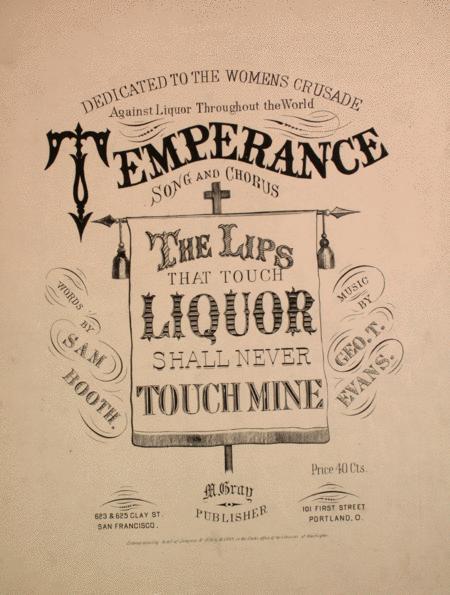 The Temperance Movement began in the 1840s and gained significant momentum through the rest of the century. Women were major leaders in the movement, with many pledging to never let the lips that touch liquor touch theirs. Unfortunately, this seemed to have little effect.
The Temperance Movement began in the 1840s and gained significant momentum through the rest of the century. Women were major leaders in the movement, with many pledging to never let the lips that touch liquor touch theirs. Unfortunately, this seemed to have little effect.
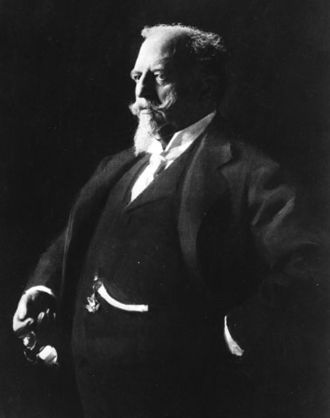 In the second half of the 19th century, an influx of immigrants from beer-loving countries, including Germany and Ireland, dramatically increased the consumption of beer in the United States. German brewers arrived to meet the demand. The most successful among these brewers was Adolphus Busch. As owner of Anheuser-Busch, he built a massive, vertically integrated operation that controlled every aspect of beer production and distribution, from mining the coal that fueled the brewery to building the refrigerated railcars to deliver the beer to Anheuser-Busch owned saloons.
In the second half of the 19th century, an influx of immigrants from beer-loving countries, including Germany and Ireland, dramatically increased the consumption of beer in the United States. German brewers arrived to meet the demand. The most successful among these brewers was Adolphus Busch. As owner of Anheuser-Busch, he built a massive, vertically integrated operation that controlled every aspect of beer production and distribution, from mining the coal that fueled the brewery to building the refrigerated railcars to deliver the beer to Anheuser-Busch owned saloons.
 Saloons were more than watering holes. They were hubs for the entire community and played important roles in the lives of patrons, especially when those patrons were recent immigrants.
Pictured here is a saloon in Wisconsin. Notice the little boy sitting at the table with his own beer glass. Boys often accompanied their fathers to saloons. Women and girls, however, were not welcome, and a woman who stepped in a saloon ruined her reputation.
Saloons were more than watering holes. They were hubs for the entire community and played important roles in the lives of patrons, especially when those patrons were recent immigrants.
Pictured here is a saloon in Wisconsin. Notice the little boy sitting at the table with his own beer glass. Boys often accompanied their fathers to saloons. Women and girls, however, were not welcome, and a woman who stepped in a saloon ruined her reputation.
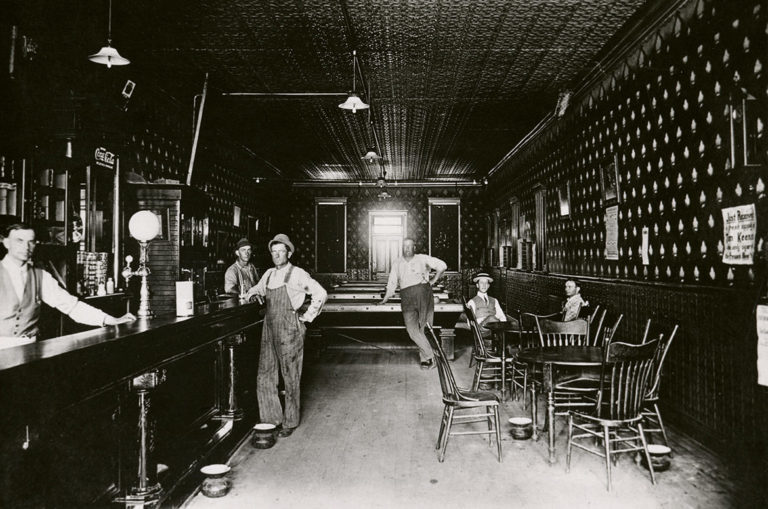 Here's another saloon, this one from Michigan. In a saloon, men could meet friends, participate in local politics, eat a free lunch, take a bath, find a job, get his mail and pawn his watch.
Here's another saloon, this one from Michigan. In a saloon, men could meet friends, participate in local politics, eat a free lunch, take a bath, find a job, get his mail and pawn his watch.
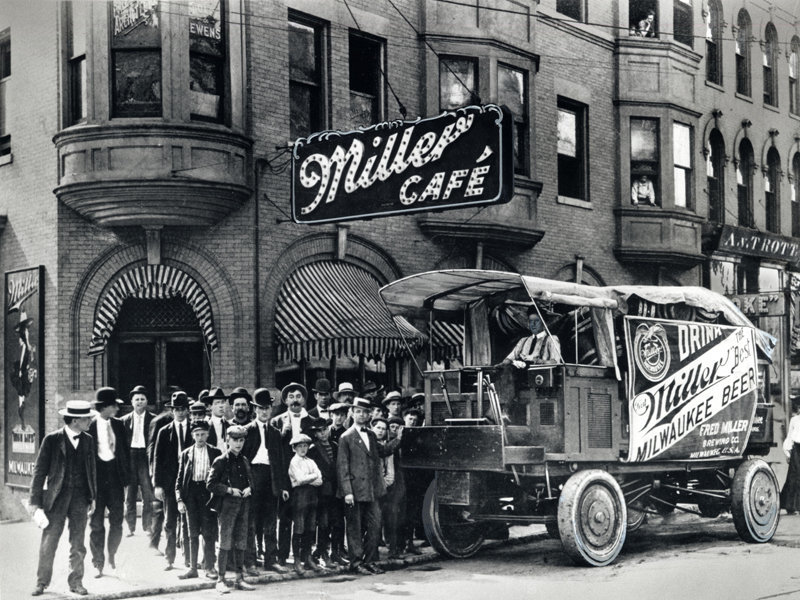 By 1900, most saloons were "tied houses." That is, they were tied to, if not actually owned by, breweries. In exchange for agreeing to sell only one brand of beer, a barkeeper would receive cash for his licensing fees, an inventory of glassware, and the furnishings for the saloon, including the pool tables and the mirrors on the walls.
This photo shows a Miller bar in Chicago.
By 1900, most saloons were "tied houses." That is, they were tied to, if not actually owned by, breweries. In exchange for agreeing to sell only one brand of beer, a barkeeper would receive cash for his licensing fees, an inventory of glassware, and the furnishings for the saloon, including the pool tables and the mirrors on the walls.
This photo shows a Miller bar in Chicago.
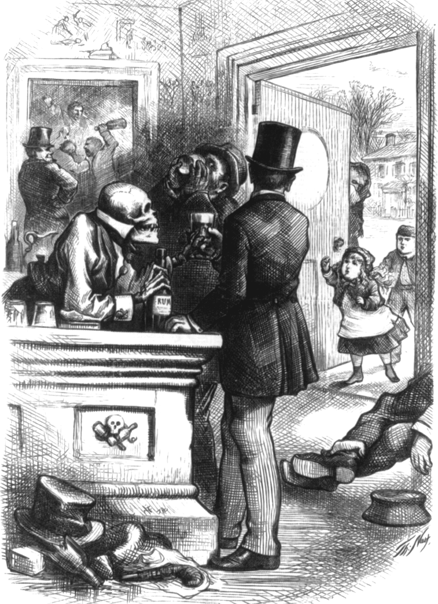 Temperance activists believed saloons were evil through and through. This cartoon, probably from the mid- to late-19th century, shows children desperately calling for the father, who stands in his natty coat and top hat at the bar. The bartender is a grinning skull, and another skull atop crossed bottles decorates in the bar. In the background, a brawl has broken out. Clearly, nothing good happens at a saloon!
Temperance activists believed saloons were evil through and through. This cartoon, probably from the mid- to late-19th century, shows children desperately calling for the father, who stands in his natty coat and top hat at the bar. The bartender is a grinning skull, and another skull atop crossed bottles decorates in the bar. In the background, a brawl has broken out. Clearly, nothing good happens at a saloon!
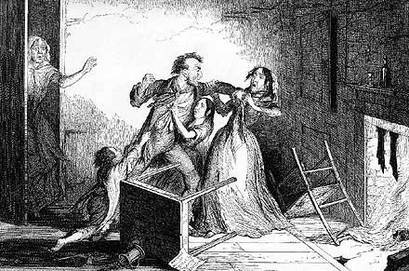 Women's rights activists in particular believed that alcohol was the cause of domestic violence. In this illustration, a drunken man takes a swing at his wife as his children cling to his legs. Many woman suffragists believed that prohibition would stop violence in the home.
Women's rights activists in particular believed that alcohol was the cause of domestic violence. In this illustration, a drunken man takes a swing at his wife as his children cling to his legs. Many woman suffragists believed that prohibition would stop violence in the home.
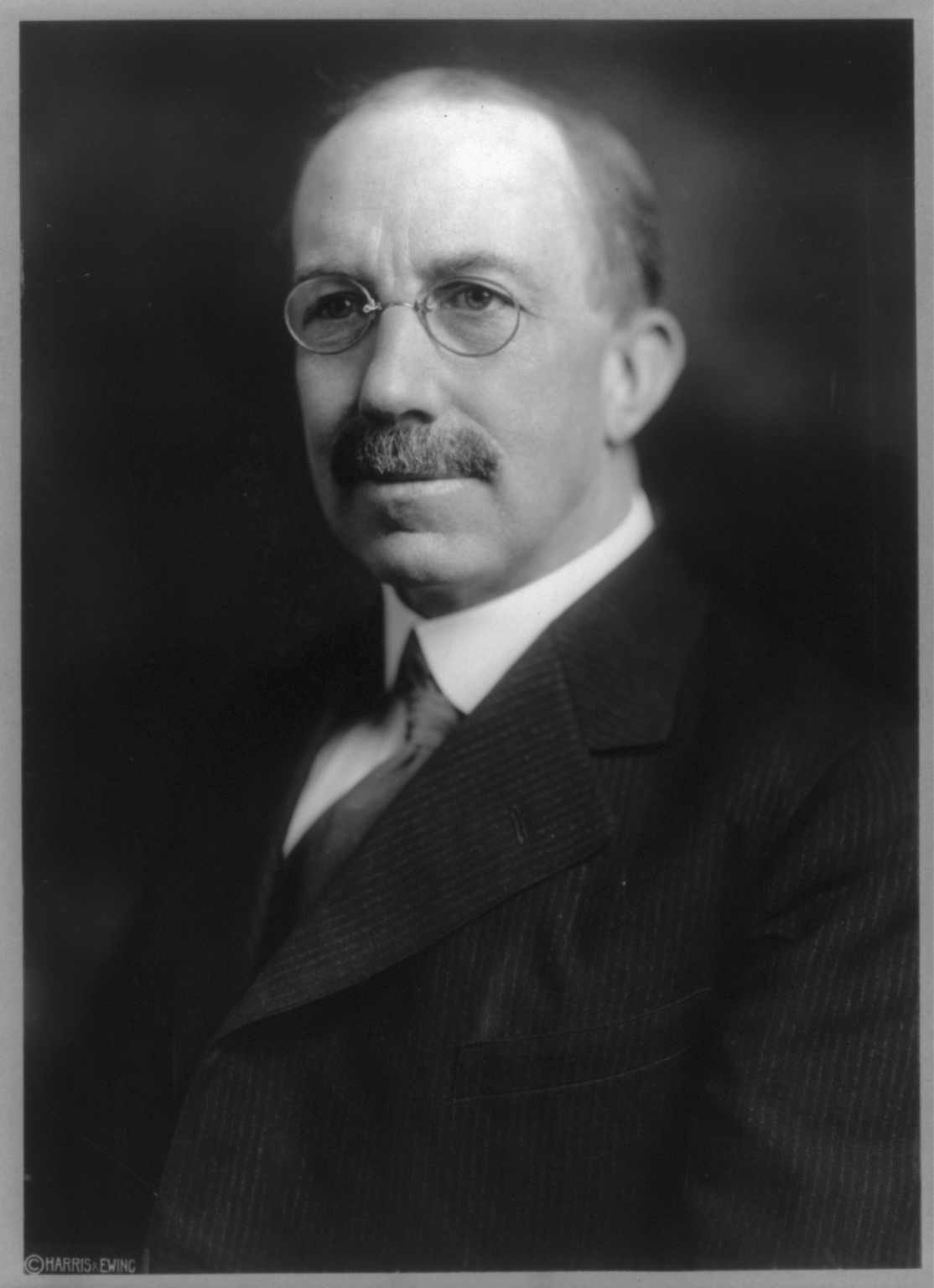 The Anti-Saloon League became a force to be reckoned with by organizing all of the anti-alcohol groups. The League was led by Wayne Wheeler, a genial midwesterner that author Daniel Okrent noted resembled Ned Flanders. In fact, Wheeler was a passionate, focused organizer with a backbone of steel who could make or break political careers.
The Anti-Saloon League became a force to be reckoned with by organizing all of the anti-alcohol groups. The League was led by Wayne Wheeler, a genial midwesterner that author Daniel Okrent noted resembled Ned Flanders. In fact, Wheeler was a passionate, focused organizer with a backbone of steel who could make or break political careers.
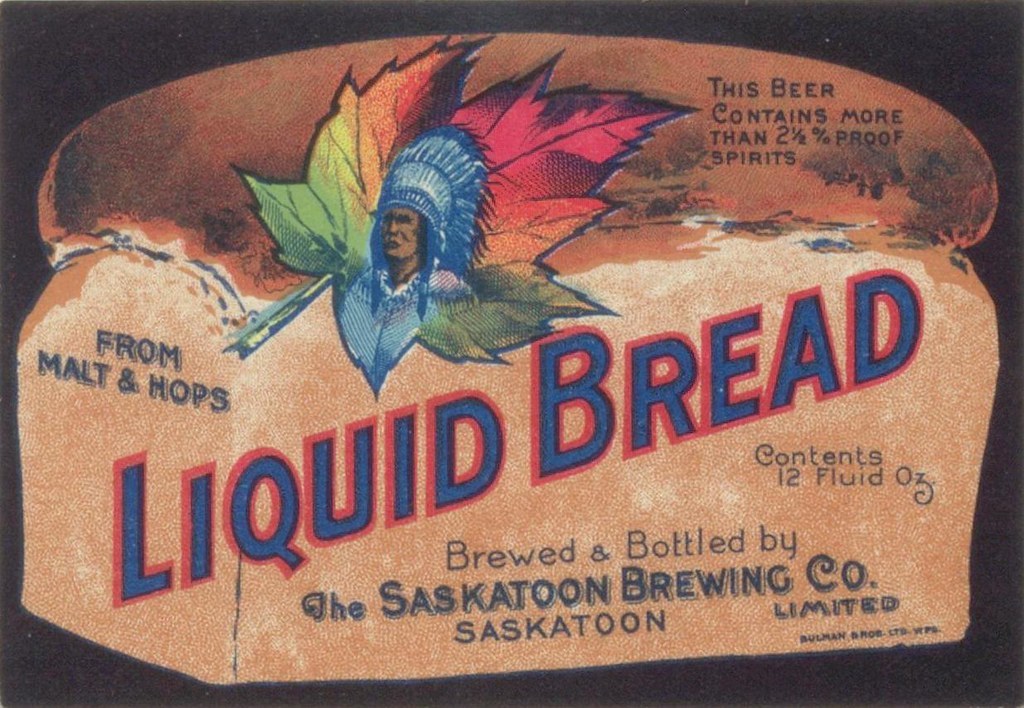 Breweries tried reframe beer as a health-giving, nourishing beverage. The Saskatoon Brewing Company tried to sell their beer as "liquid bread."
Breweries tried reframe beer as a health-giving, nourishing beverage. The Saskatoon Brewing Company tried to sell their beer as "liquid bread."
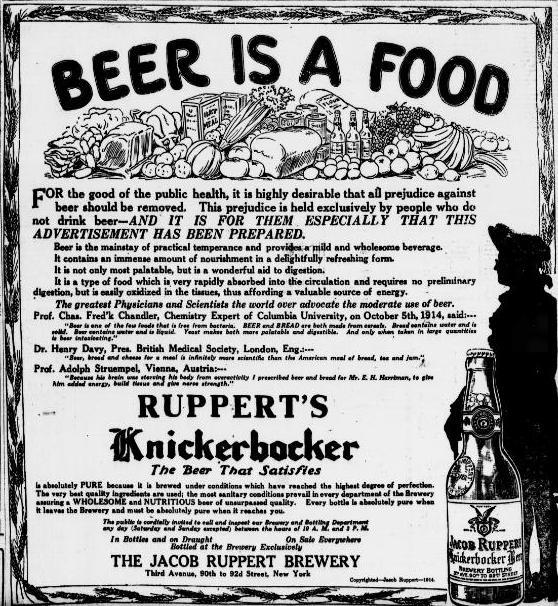 Knickerbocker Beer ran ads declaring "Beer is Food" and claiming that beer was not only "a wonderful aid to digestion" and a "valuable source of energy" but also "a mainstay of practical temperance."
Knickerbocker Beer ran ads declaring "Beer is Food" and claiming that beer was not only "a wonderful aid to digestion" and a "valuable source of energy" but also "a mainstay of practical temperance."
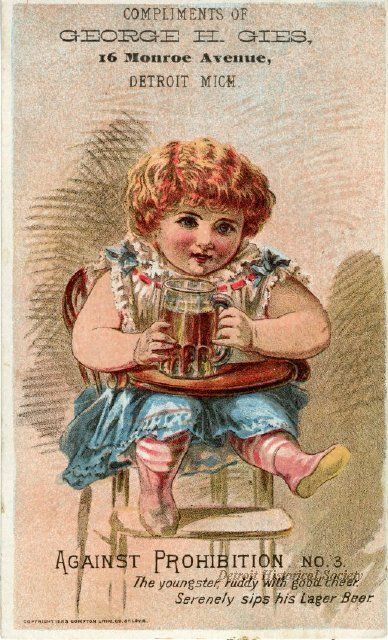 An Anti-Prohibition coalition produced this ad, showing a fat and happy baby drinking a stein of beer. No one was convinced by any of these campaigns.
An Anti-Prohibition coalition produced this ad, showing a fat and happy baby drinking a stein of beer. No one was convinced by any of these campaigns.
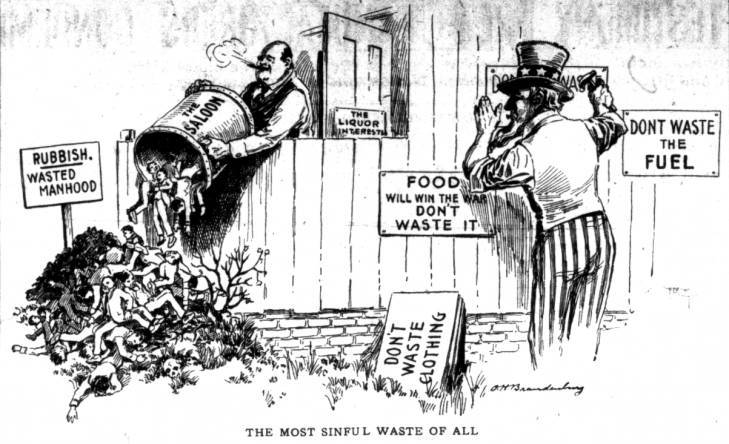 Once the United States entered World War I, a new argument began to be made against the alcohol industry: it wasted food and fuel. Americans were called upon to save food for the military, as well as for the British, French and Belgians. The Anti-Saloon League argued that the alcohol industry wasted tons of food and fuel.
In this cartoon, Uncle Sam puts up posters calling to save food and fuel while the saloon tosses out barrels not only of goods but also of "wasted manhood."
Once the United States entered World War I, a new argument began to be made against the alcohol industry: it wasted food and fuel. Americans were called upon to save food for the military, as well as for the British, French and Belgians. The Anti-Saloon League argued that the alcohol industry wasted tons of food and fuel.
In this cartoon, Uncle Sam puts up posters calling to save food and fuel while the saloon tosses out barrels not only of goods but also of "wasted manhood."
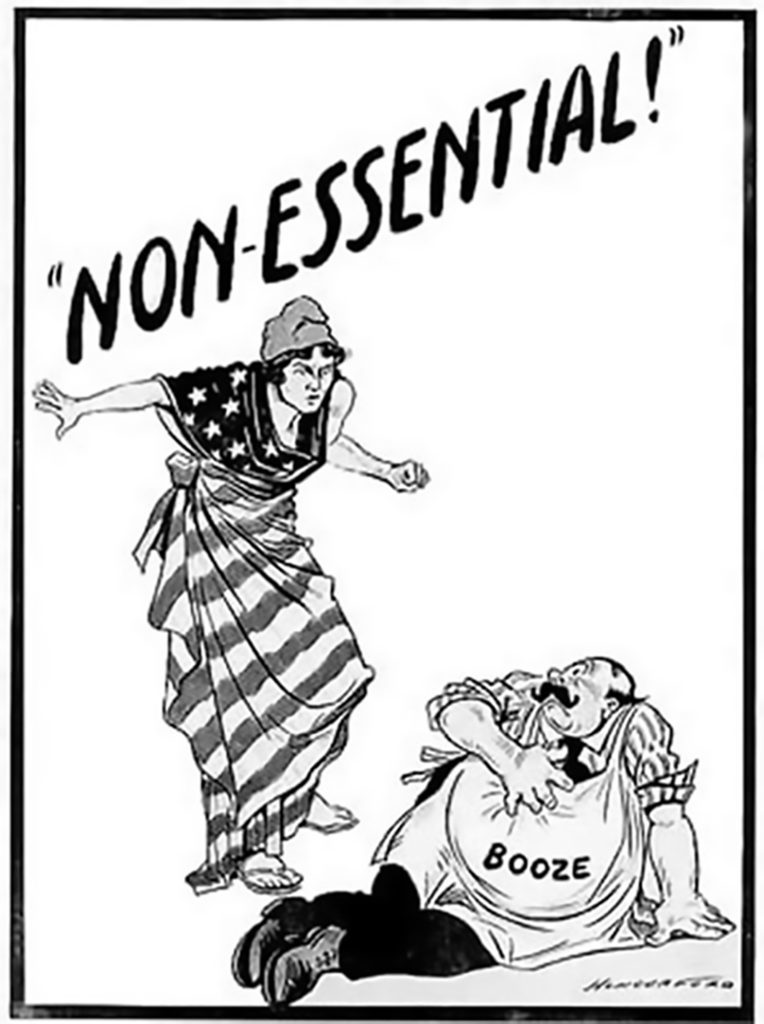 "Non-essential" was an insult during the war--anything non-essential to winning the war was useless and to be despised. Here a woman clad in an American flag hurls the word at a fat man identified as "Booze."
"Non-essential" was an insult during the war--anything non-essential to winning the war was useless and to be despised. Here a woman clad in an American flag hurls the word at a fat man identified as "Booze."
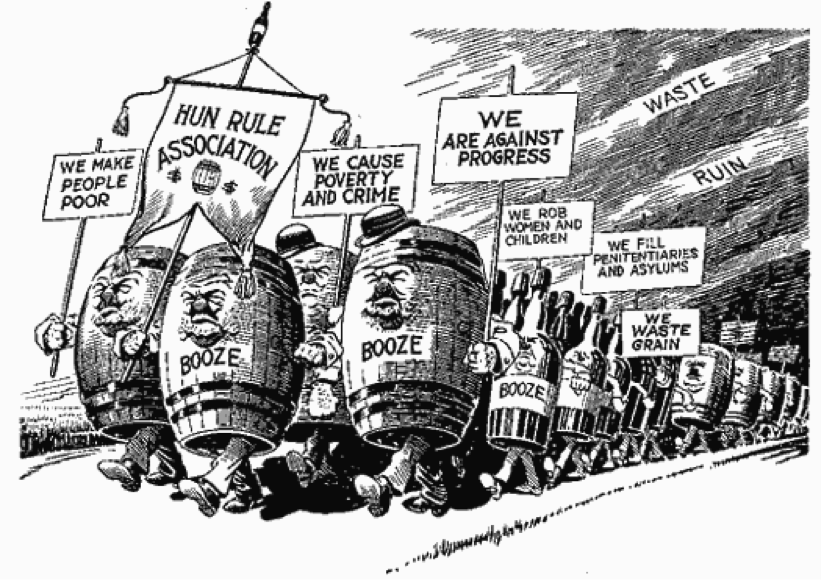 In late 1917, riding the wave of anti-alcohol sentiment, the Dry alliance pushed the 18th Amendment through Congress. It went to the states for ratification.
The Anti-Saloon League coordinated the ratification fight with an attack on the United States Brewers Association and an immigrant association it had long backed, the German American Alliance. The League convinced the Senate, and the American people, that the Alliance and the Brewers were under the control of the Kaiser and enemies of America.
In late 1917, riding the wave of anti-alcohol sentiment, the Dry alliance pushed the 18th Amendment through Congress. It went to the states for ratification.
The Anti-Saloon League coordinated the ratification fight with an attack on the United States Brewers Association and an immigrant association it had long backed, the German American Alliance. The League convinced the Senate, and the American people, that the Alliance and the Brewers were under the control of the Kaiser and enemies of America.
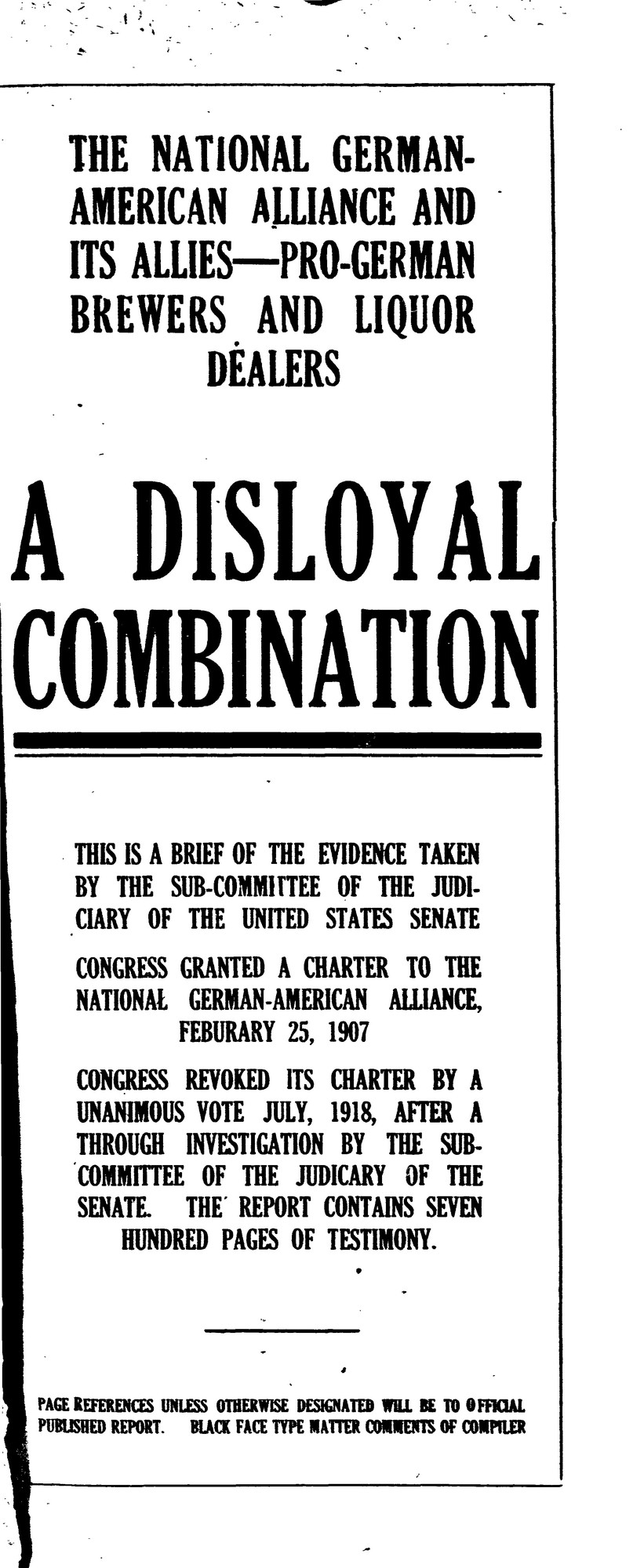 A Senate sub-committee investigated the charges and seemed to prove all sorts of underhanded dealings. It's true that the Brewers had played dirty by bribing politicians and and paying off newspapers, but their aim had been to stop Prohibition, not lost the war to Germany.
A Senate sub-committee investigated the charges and seemed to prove all sorts of underhanded dealings. It's true that the Brewers had played dirty by bribing politicians and and paying off newspapers, but their aim had been to stop Prohibition, not lost the war to Germany.
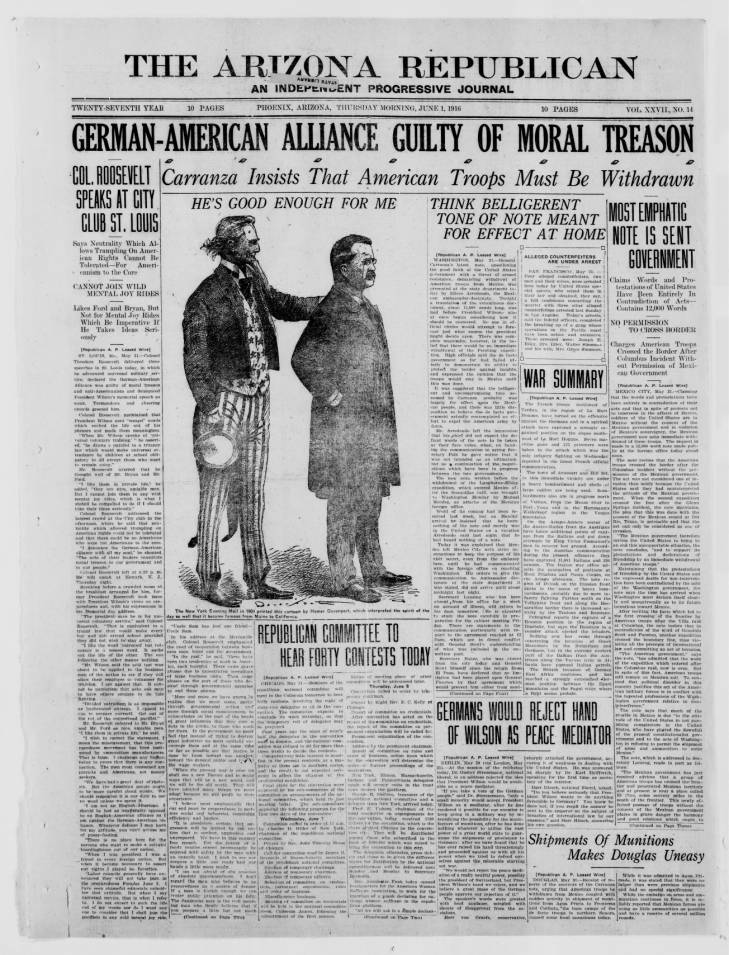 No charges ever came out of the subcommittee, but it didn't matter. Americans had found the Alliance and the Brewers guilty in the court of public opinion.
No charges ever came out of the subcommittee, but it didn't matter. Americans had found the Alliance and the Brewers guilty in the court of public opinion.
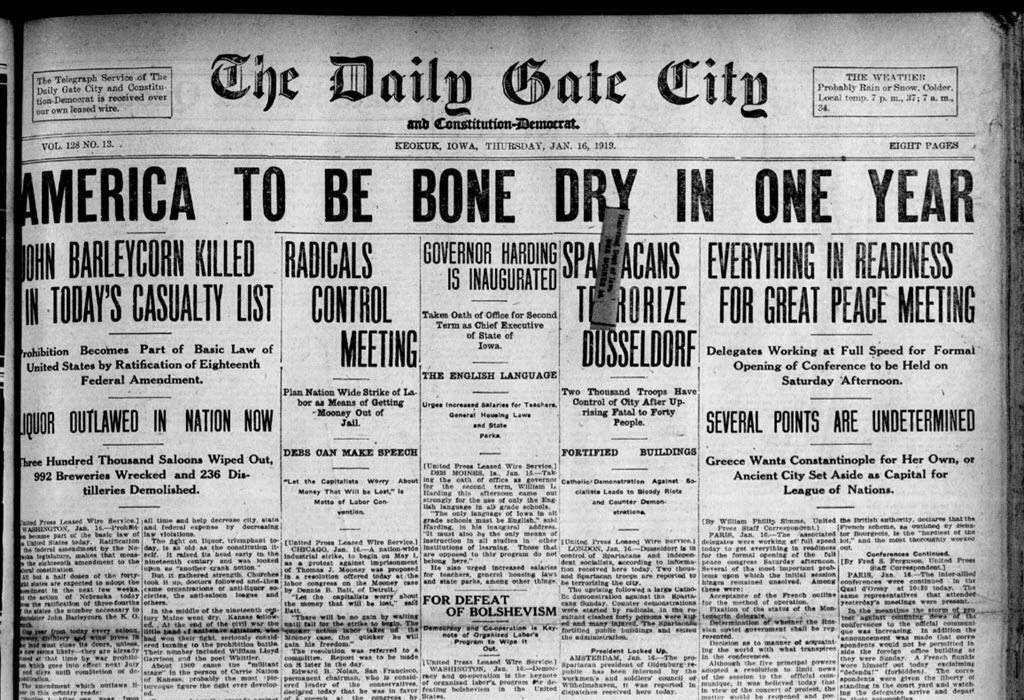 In this heady atmosphere, the 18th Amendment was rapidly ratified by all but two states on January 17, 1919. In one year, the amendment would go into effect.
In this heady atmosphere, the 18th Amendment was rapidly ratified by all but two states on January 17, 1919. In one year, the amendment would go into effect.
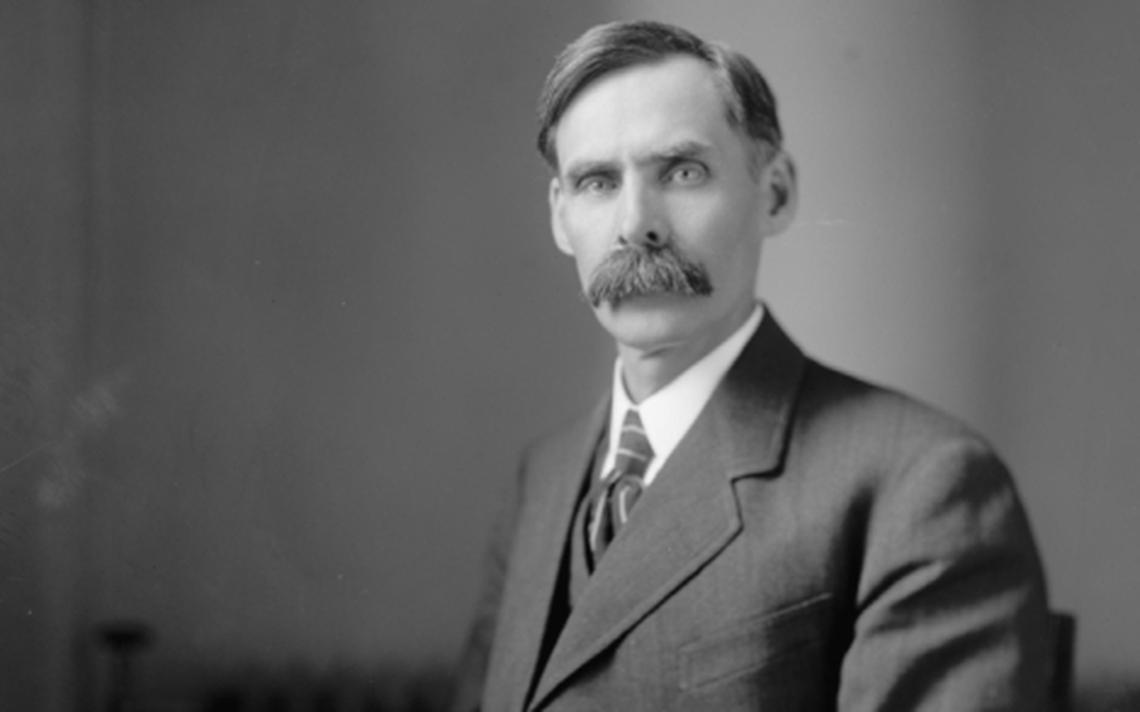 The most important job for Congress was to pass legislation defining the terms of the 18th Amendment (what constituted an "intoxicating beverage"?) and creating enforcement mechanisms. The man responsible for the bill was Andrew John Volstead, a man so strait-laced he did yardwork in a coat and tie.
The most important job for Congress was to pass legislation defining the terms of the 18th Amendment (what constituted an "intoxicating beverage"?) and creating enforcement mechanisms. The man responsible for the bill was Andrew John Volstead, a man so strait-laced he did yardwork in a coat and tie.
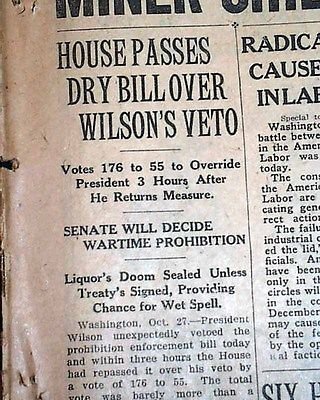 Volstead's bill passed in October, but then Wilson vetoed it. Americans were shocked. Wilson had never even committed on Prohibition. Congress, fed up with the president after the long and ugly League of Nations fight, overturned the veto two hours later.
Volstead's bill passed in October, but then Wilson vetoed it. Americans were shocked. Wilson had never even committed on Prohibition. Congress, fed up with the president after the long and ugly League of Nations fight, overturned the veto two hours later.
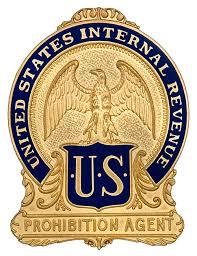 The Volstead Act called for the creation of a new Prohibition Unit to stamp out illegal alcohol. But the agents were to be paid measly salaries and the majority lacked any law enforcement training or experience. They were, inevitably, corrupt.
The Volstead Act called for the creation of a new Prohibition Unit to stamp out illegal alcohol. But the agents were to be paid measly salaries and the majority lacked any law enforcement training or experience. They were, inevitably, corrupt.
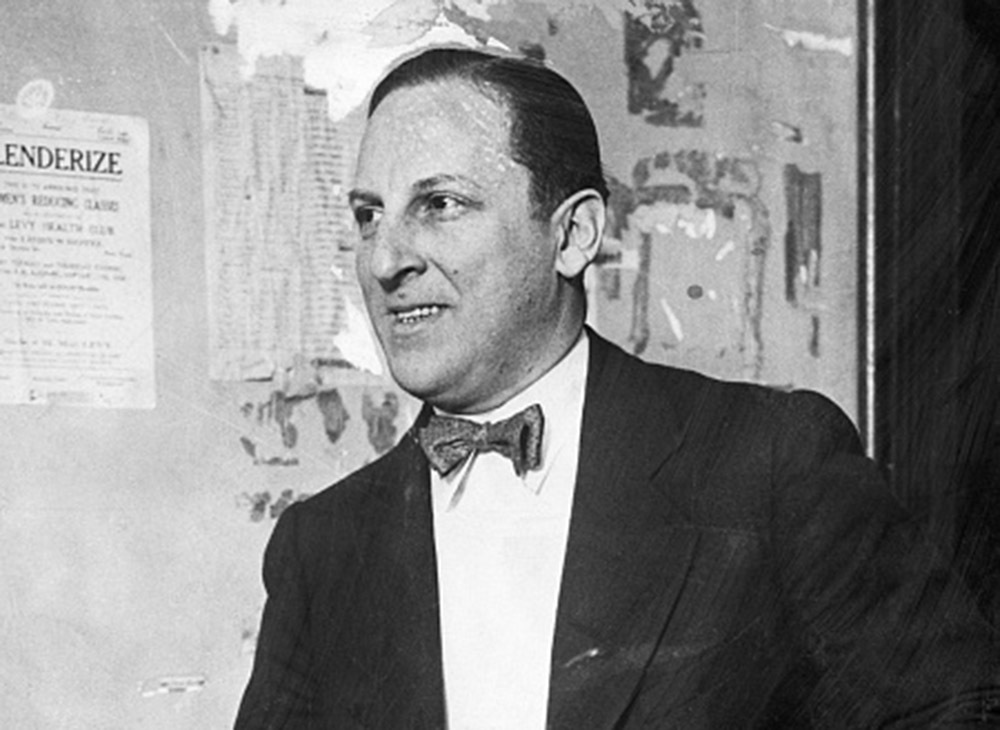 Criminals also spent 1919 getting ready for Prohibition. Arnold Rothstein, who providing the funds to throw the 1919 World Series, organized a comprehensive smuggling operation to bring liquor from Europe to the United States. He was only one of many crooks and bootleggers getting their ducks in a row for the following year.
Criminals also spent 1919 getting ready for Prohibition. Arnold Rothstein, who providing the funds to throw the 1919 World Series, organized a comprehensive smuggling operation to bring liquor from Europe to the United States. He was only one of many crooks and bootleggers getting their ducks in a row for the following year.
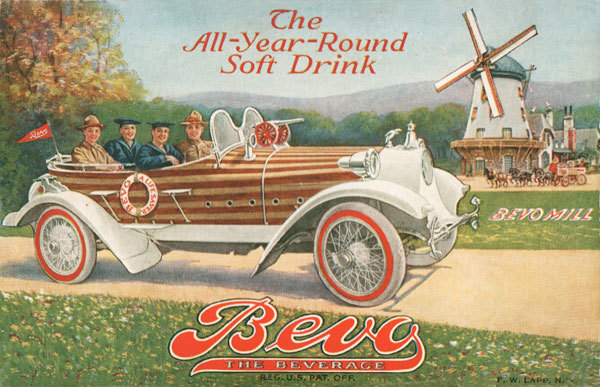 Brewers had to find a way to make do. Anheuser-Busch sold malt extract, brewer's yeast, and Bevo, a soft drink. It was not a success.
Brewers had to find a way to make do. Anheuser-Busch sold malt extract, brewer's yeast, and Bevo, a soft drink. It was not a success.
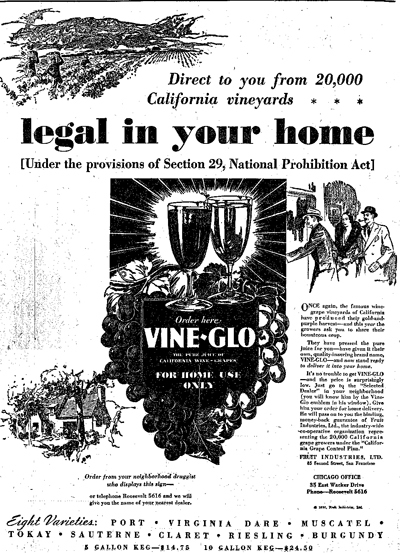 Companies also found creative ways to exploit loopholes in the Volstead Act. It was perfectly legal, for example, for wineries to condense grape juice down to semi-solid block known as a "grape brick." These bricks were sold along with careful instructions on how not to mix the juice with water to make wine. You wouldn't want people to accidentally break the law, now would you? Homebrew kits came with similar instructions.
Companies also found creative ways to exploit loopholes in the Volstead Act. It was perfectly legal, for example, for wineries to condense grape juice down to semi-solid block known as a "grape brick." These bricks were sold along with careful instructions on how not to mix the juice with water to make wine. You wouldn't want people to accidentally break the law, now would you? Homebrew kits came with similar instructions.
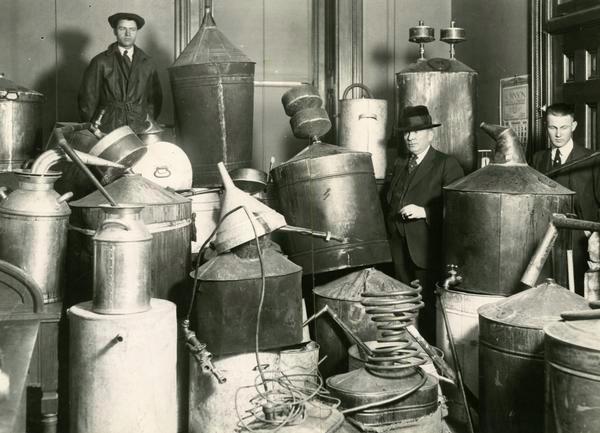 Moonshine operations sprang up across the country, with different regions developing their own recipes and reputations for quality or lack thereof. Pictured here are stills seized from moonshiners in Colorado. The metal was sold for scrap. It's likely by the time this photo was taken, the moonshiners had already begun their next batch.
Moonshine operations sprang up across the country, with different regions developing their own recipes and reputations for quality or lack thereof. Pictured here are stills seized from moonshiners in Colorado. The metal was sold for scrap. It's likely by the time this photo was taken, the moonshiners had already begun their next batch.
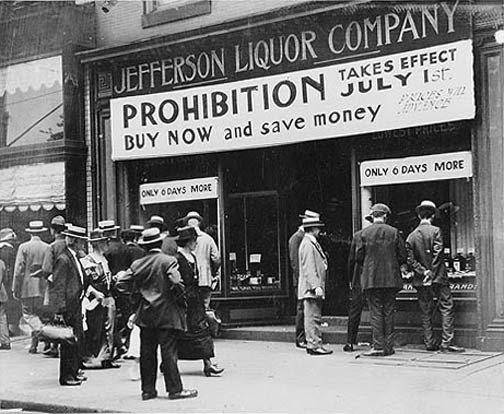 As the clock wound down to January 17, liquor stores began selling out their inventory. People stockpiled as much as they could afford--since, as far as they knew, alcohol would be illegal forever in the United States.
As the clock wound down to January 17, liquor stores began selling out their inventory. People stockpiled as much as they could afford--since, as far as they knew, alcohol would be illegal forever in the United States.
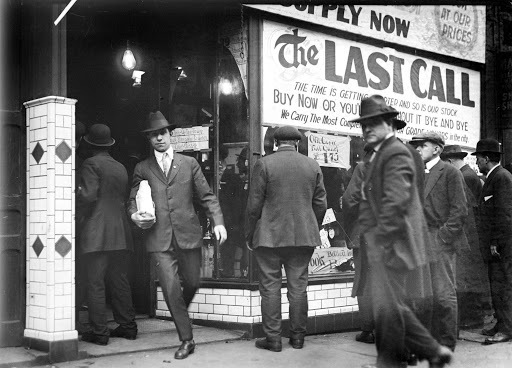 Here a line extends out of the store as men line up to buy a last few bottles. It was going to be a long, dry time.
Here a line extends out of the store as men line up to buy a last few bottles. It was going to be a long, dry time.

This week join Amber and Kendra as they explore the effects of the 18th Amendment after it was put into action and how it was repealed by the 21st Amendment.
In this episode you will hear about some of the key players, such as the Anti-Saloon League, bootleggers, and mobsters such as Al Capone and key factors as to why it was repealed.... SPOILER ALERT! Money has a BIG part in it and to add to it America was spiraling down into the Great Depression.
For more information be sure to check us out on the socials at:
Facebook: Why Blank Matters
Instagram: Why__Matters
Twitter: Why__Matters
And now - were also on Pinterest at Why (blank) Matters!


Daniel Okent, author of Last Call: The Rise and Fall of Prohibition, talks about the book with EconTalk host Russ Roberts. They discuss how the 18th Amendment banning the manufacture, sale, and transport of intoxicating beverages came to pass in 1920, what life was like while it was in force, and how the Amendment came to be repealed in 1934. Okrent discusses how Prohibition became entangled with the suffrage movement, the establishment of the income tax, and anti-immigration sentiment. They also discuss the political economy of prohibition, enforcement, and repeal--the quintessential example of bootleggers and baptists.
Stay up to date
For any inquiries, please email us at hello@podcastworld.io